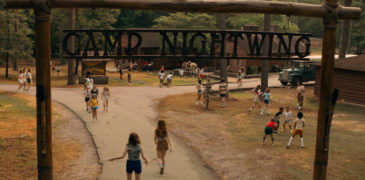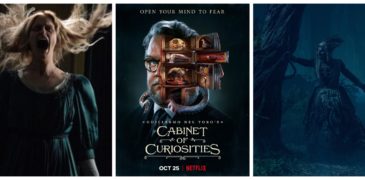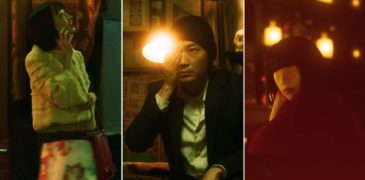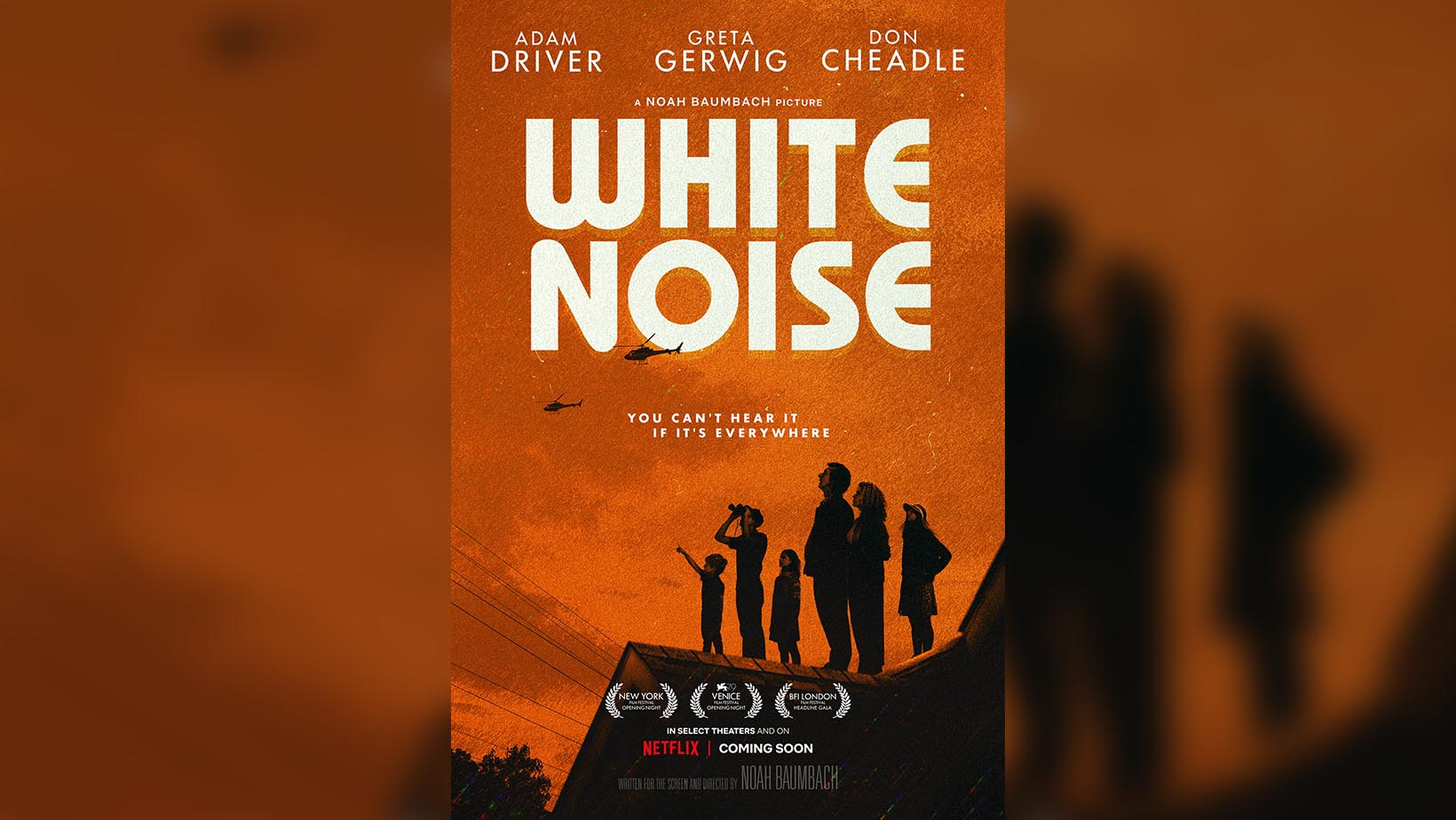
Life is a Train Wreck
In the final days of 2022, most of us were looking toward 2023 with hearts full of hope, and faith that the moment those glittery balls dropped around the world, we would finally be free of the hellscape our lives have become. The new year couldn’t possibly be as bad as the past few, right? Given the message of Noah Baumbach’s newest masterpiece White Noise (2022), Netflix’s decision to release it the day before we set out to celebrate was marketing genius.
Based on the award-winning 80s novel by Don DeLillo, White Noise is an absurdist comedy horror drama that pushes the viewer to ask themselves “Ok, but it can’t get worse than this, right?”. The answer, my friends, is “Oh yes, it can.” The issues at play in this story were topical in the 1980s, but they’re still relevant now. Divorce, mixed families, mental illness, consumerism, drug addiction, the threat of new pathogens, climate disaster, and existential crisis are all explored in this frantically paced arthouse feature that, if nothing else, will make you think.
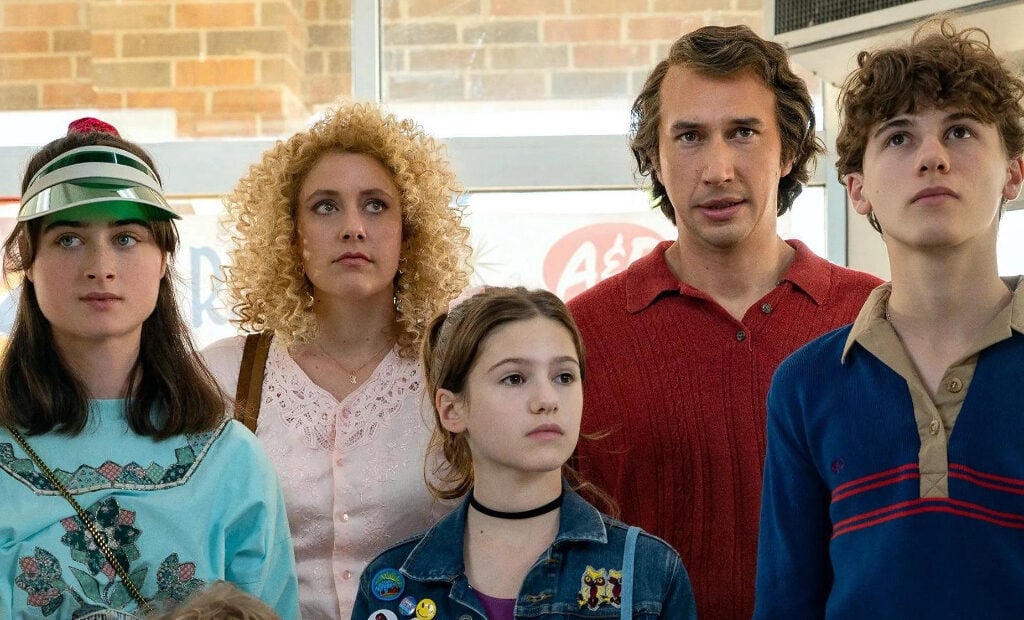
Jack Gladney (Adam Driver) is a middle-aged professor of Hitler Studies at The College on the Hill, in a department he created for himself because it was Hitler was a popular topic in literary circles. He’s so well-known for his animated lectures that he’s become downright famous, despite the fact that he’s a fraud. He can’t even speak German. His colleagues vie for his attention, even requesting that he make guest appearances in their classrooms to improve their own popularity. He’s a celebrity on campus, but at home, he’s just a step/dad with a blended family and a problem he doesn’t know about yet. There’s something wrong with his fourth wife Babette (Gretta Gerwig), but the family is ignoring her ever-changing schedule because there is always something else to talk about. When a train is derailed a few miles from their home, the disaster-junkie children gather around the family television to obsessively watch news reports while Babette quietly comes and goes in the background. The kids are sure that the large cloud of smoke billowing from its burning chemical cars is going to become a big problem, but Jack is dismissive. He needs to focus on learning German before he gives an important speech at a neighbouring college. News reports quickly escalate, much the same way ours did back in March 2020, and to Jack’s annoyance, the town is evacuated under emergency orders. That harmless cloud contains particles that could kill them.
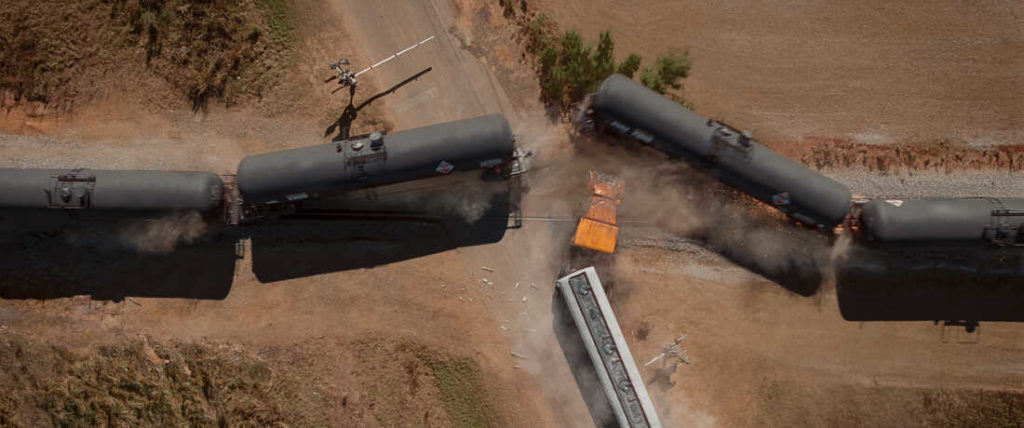
The family leaves a little too late and becomes stuck in the kind of traffic jam that would make anyone fleeing a chemical disaster panic, but no one seems upset. The absurdity of the conversations in the car is noted, but it doesn’t stop until another disaster happens right in front of them: an idiot driver loses control of his vehicle and leaves a large swath of death and destruction in his wake. Jack would like to help, but it’s raining. When they finally make it to an evacuation camp, they are triaged and told they can’t leave. While filling his gas tank, Jack was exposed to the toxic rain after all, and his health is in jeopardy. Instead of confiding in Babette, though, Jack lays on his cot and watches as his family members move about the camp, separately engaging small crowds in conversations meant to be helpful in their own way, feeling pride in their leadership, which he equates to his own. It’s a sad statement about how pride and appearance are more important than taking care of one’s own health, mental or physical.
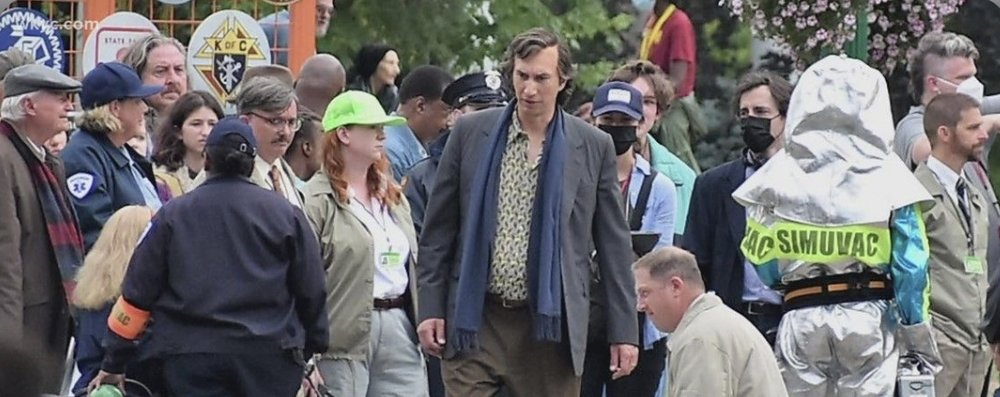
After the cloud is dealt with, the family returns home, but they are changed. Suddenly Babette’s illness becomes more apparent, and it must be dealt with. She’s been hiding mysterious pills around the house, and her daughter is determined to find out what they’re for. In a dramatic reveal, Babette confesses her condition to Jack, and the horror she’s been through in her attempts to cure it. While there is some sympathy, Jack is more interested in revenge.
At this point, this review must seem confusing and disjointed. That’s what it’s like watching White Noise. The message, or the point, is not entirely clear until more than ¾ of the way through the film, and even then it’s debatable. White Noise is classed as a Comedy Horror Drama, though, and it hits all of these marks in many ways. In one moment we are watching a car flying through the air, sheering other vehicles and bodies in half, and in the next, the Gladney’s station wagon is hilariously floating sideways down a river while the children debate inane animal facts. The subject of death is brought up and focused on from start to finish. Jack and Babette discuss not wanting to die first near the beginning of the film, and then they both have brushes with death that they hide from one another before Babette’s diagnosis is finally revealed.
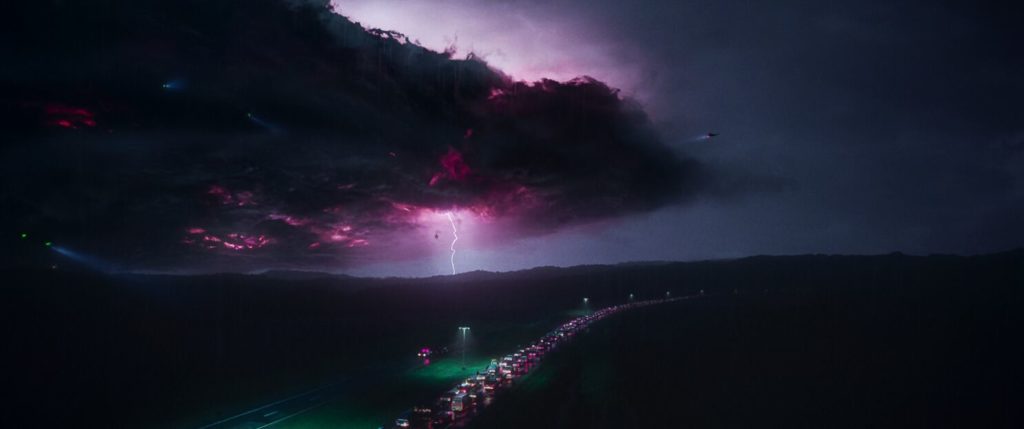
Visually, the film is outstanding. At an estimated $140 million dollars, White Noise is Netflix’s largest budget movie to date. The train crash scene is pure cinema magic, but the night shots of the electrified cloud billowing across the sky are stunning. Helicopters fly in and out of it while purple lightning ignites it from within, illuminating stranded passengers standing around their cars on the gridlocked highway, too entranced with its beauty to heed their radios and stay out of the toxic rainfall. The frantic scene when the camp is suddenly evacuated is so expertly choreographed that viewers will be on the edge of their seats with anxiety watching all of the near-misses (and hits). The grocery store featured in several scenes is huge and appears to be fully stocked with products that were available in the 1980s which must have cost the producers a large portion of the budget. Everything about this film is over the top, including the cereal aisle.
Now take those larger-than-life scenes and visuals and put them beside small, personal moments meant to divulge the inner thoughts of Jack and his relationship with Babette, and experience the inverse power of juxtaposition. Baumbach excels at inciting phrenetic emotion in his viewers as he takes us from panic and awe to suspicion and sadness in back-to-back scenes. Add to this rollercoaster a constant babbling conversation in which multiple characters are speaking over one another and what you’re left with is the point of the story: white noise. There’s just so much, all the time, that it becomes impossible to understand any of it. It’s a clever device, and it perfectly illustrates what humanity has become: an excessive cacophony of everything and nothing, and none of it matters in the end. We all die, no matter what we did or who we were.
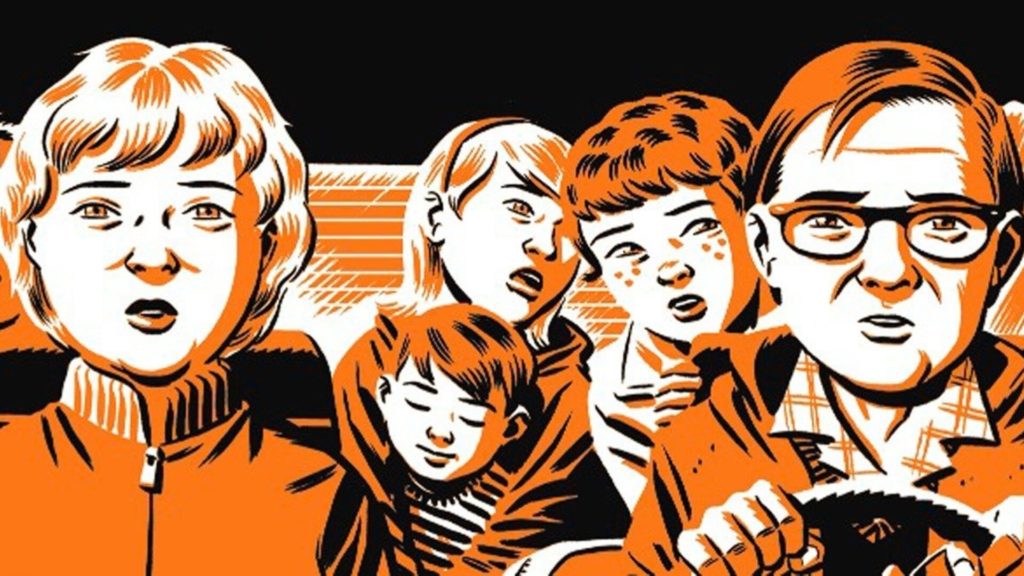
The novel has long been considered impossible to translate to film, but director Noah Baumbach fell in love with the story after his father told him to read it in 1985, and wrote the screenplay adaptation himself. As a Jewish student from an academic family in Brooklyn, he identified with DeLillo’s Bronx Italian heritage and his writing voice as a “suburban tourist”. Baumbach’s work has also been heavily influenced by his own father, a man who fought to protect his family after divorce in the 1980s during the era of consumerism and Reaganomics. Check out his semi-autobiographical exploration of family relationships and trauma through divorce in The Squid and The Whale (2005). His decision to adapt DeLillo’s novel happened in 2019 when he re-read “White Noise” after his father died, and he realized he was the same age as the main character. He felt that creating the film was like having a conversation with his father while he mourned his passing.
The film has been analyzed and critiqued by every major reviewer, and the opinions expressed are often unfair given the ambition that went into making it. Netflix has long been the target of excessive criticism, especially from those who would prefer that big scripts stay with Hollywood production companies, but Baumbach deserves credit for giving us this spectacle to behold. His adaptation was perfectly cast, and his direction of the intense dialogue scenes (especially Adam Driver’s pre-planned interruption in Don Cheadle’s lecture about Elvis) is impressive. For an “impossible to film” book, Baumbach stuck close to the original story and expertly portrayed DeLillo’s intended voice and meaning. While other book-to-film adaptations have entirely disregarded the original author’s vision, Baumbach’s loyalty to “White Noise” is obvious in the care he took with his screenplay.
Watch it for the laughs and the special effects, but be warned: there is real horror here, too. It’s not zombies, it’s not a slasher, it’s worse: it’s reality.
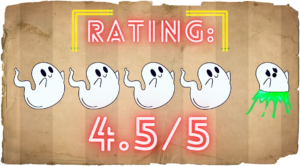
White Noise is now streaming on Netflix everywhere.
More Netflix Reviews
Incident in a Ghostland has been popping up on horror fan group pages since its recent release on Netflix, and the reviews are mixed. It seems to be a “love… I can’t believe that in my review of Fear Street: 1994, I forgot to mention the most important part of a successful slasher film: the sequel. Some slashers don’t always… Netflix really stepped up its Halloween game this year, launching more exclusive horror series in October 2022 than any other non-themed streaming service in North America. Horror fans have grown… Black Summer series 2 dropped on Netflix recently, so writers Dustin Domingo and Luke Greensmith have joined forces to explain what’s different about yet another zombie franchise, giving a thorough… Nightbooks begins with the story of Alex, who is obsessed with scary stories. Once his best friend decides he is uncool because of it, Alex makes the decision to burn… Susumu Nokoshi once worked for a top foreign financial company. He is now a 34-year-old homeless man, usually found around a park in Shinjuku. He then meets medical school student…Incident in a Ghostland (2018) Film Review
Fear Street Part Two: 1978 Film Review – If you want Blood, you got it!
Guillermo del Toro’s Cabinet of Curiosities – Every Episode Ranked
Black Summer Season 2 Review – Not Just Another Zombie Apocalypse
Nightbooks (2021) Film Review- Netflix Family Horror
Homunculus (2021) Team Review – What Would Your Trauma Look Like?

Kate’s love of all things dark began as a child and deepened when she realized what being an adult meant. She was born with a pencil in her hand and loves nothing more than writing horrific stories to tantalize her inner demons. Kate lives in Hamilton, Ontario Canada with her husband and her boys, stirring up trouble wherever she can.
